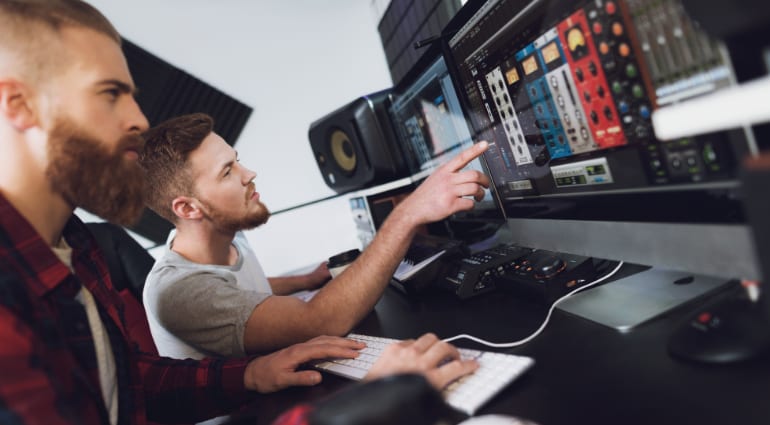
The answer is… YES!
You just finished recording your song (or EP, or even a 11-track album) and you’re ready to conquer the world. You did the mixing right and nailed that sound you had in mind. Everything sounds great and smooth. It’s time to distribute and upload your music, right?
Well, no. You still need to MASTER your track(s). But what is mastering, actually? Let’s find out!
What is mastering?
In the good ol’ days, mastering was meant, first of all, as the transfer of the recorded audio/source to a physical data storage which was called, as you can guess, the master. The master (tape or cd) was used as the big source, the seed that allowed the copies to be made: the father of all the copies. Alongside the transferring process, an audio processing was involved: equalisation, compression and limiting were applied to the track(s) in order to allow the end product to sound good on various sources and to maximise and sweeten the sound itself for an easier listening.
The tape mastering required extra steps such as electronic treatments, which you can read about on the Wikipedia page about mastering, that contains a lot of cool information about the older mastering methods.
In this article we will focus on digital mastering, as it is the most-frequently used method in modern times and the easiest to achieve.
Digital Mastering
Mastering can be achieved by using a DAW and included and/or third-party plug-ins that resemble the functions, sounds and results of the analog devices: equaliser, compressors, limiters, tools to control the stereo image, multi band compressors and so on.
Preparing tracks for mastering is as important as the mastering process itself:
- the mix should sound as close as you expect the end result to sound like, as mastering can’t turn an amateur-sounding mix into a professional product.
- making sure that the master track has no limiter or compressor activated on it (which can be the case when you mix your song and will eventually put a limiter on the master send just to raise the volume and listen better to the song)
- make sure that the peak of the song (volume-wise) doesn’t go anywhere near 0dBFS. The ideal sweet spot varies depending on different engineers’ opinion and also on music genre: safe spot is said to be between -3 and -6 dB
- eliminate as much noise as possible from the single tracks (background noise, pops, weird noises caused by over-abuse of certain plug-ins)
- leave a few seconds before and after the track
- listen again before sending/putting the track up for mastering: sometimes the bounce process generates glitches in the end files. If that’s the case, re-bounce it and listen again.
How do I do it?
Mastering engineers are professionals who crafted their skills after countless hours of trials, errors and actual working experience. Having said that, there’s nothing wrong in trying to master your songs by yourself and learning how to do it. Remember the 3 golden rules of mastering:
Make the track louder
Make the track sound better
Make the track perfectly listenable on different kinds of audio sources/speakers
Now import your final mix into your DAW and start to fix what’s wrong: by using a compressor you can even out the levels, you can change the sound and mood of the song by using equalisers and multi–band compressors (also useful to match a reference track you like). You may decide to give some more colour to the mix by using a saturation plugin. Raising the volume up (without crushing the dynamics and entering into the “Loudness Wars” territory) can be achieved with a limiter. Make a quick check with a metering tool (LUFS, Dynameter) to see if the dynamic range is preserved. When you’re happy with the result, bounce your track.
Now test the master on your car radio, through cheap headphones, on your home stereo and on your smartphone. If it sounds consistently good and you like the sound, you’re pretty much done.
Disclaimer: we tried to sum up within a few lines a process that can take HOURS and tons of knowledge. Use our ‘simple’ guide as a starting point and work your way step by step. Remember to use your ears, not your eyes, and take frequent breaks to avoid ear fatigue.
Tell me which plug-ins I need!
You can either use your DAW‘s included plug–ins, buy third-party single plug-ins or get complete suites for mastering. For the latter, you can choose between premium Mastering Suites such as iZotope Ozone 8 Advanced, Magix Samplitude Pro X4 Suite or Steinberg Wavelab Pro 9.5
You can get bundles that contain all the tools you need for mastering (plus many more!) such as the FabFilter Total Bundle, the Waves Mercury bundle and the Sonnox Elite Pack HD-HDX.
Online mastering services
In recent years, online mastering services started to pop up on the web. What they do, basically, is using algorithms and AI to determine where your song needs to be fixed and they do it in real time. Most of the time the process is pretty simple: upload your track (pay attention to the technical requirements!), wait for the process to finish and then download your mastered track (or tracks). Easy as it sounds!
Websites such as eMastered, LANDR, BandLab and CloudBounce offer those services at convenient prices.
Are those services as good as mastering engineer session? We think that technology has made giant steps but there’s still something unique and necessarily ‘human‘ in nailing the perfect mastering for a song. The services are getting better day by day and we can’t wait for what the future holds. Give them a try if you don’t want to master your own tracks, only you can decide if those services are worth the cost.
Mastering is a huge part of a song’s production. Sometimes, it’s also the most overlooked part of the process. Make sure you master your tracks before distribution and if you’re not 100% sure about the results, hire a professional. There’s nothing worse than an awesome song that sounds bad through your fans’ devices.
Are you into mastering? Tell us which plugins you currently use!
9 comments
Leave a Reply
You are currently viewing a placeholder content from Facebook. To access the actual content, click the button below. Please note that doing so will share data with third-party providers.
More InformationYou are currently viewing a placeholder content from Instagram. To access the actual content, click the button below. Please note that doing so will share data with third-party providers.
More InformationYou are currently viewing a placeholder content from X. To access the actual content, click the button below. Please note that doing so will share data with third-party providers.
More Information




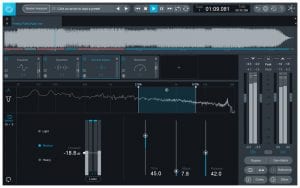


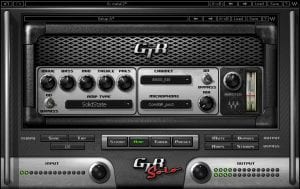
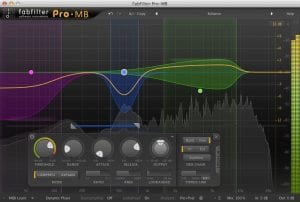
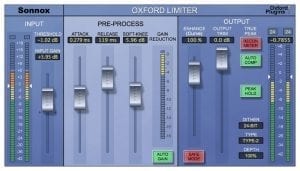










Garry Bartlett says:
Mastering is a mystic art that can be easily decoded…
With today’s digital domain it is easy and cheap… Luffs threw me a little because of so many tears in db…
LMH Audio Services – lmhaudioservices@gmail.com
Godfrey Ryan says:
I have been mastering audio for radio, television and commercial records since 1968. I do not recognize any of these techniques, perhaps because I don’t do Digital. I still master in my 70s, from multiple magnetic tape sources onto my Studer A80-R master recorder at 15 inches per second. If this article is anything to go by, then mainstream ‘Mastering’ today is nothing more than wanton destruction and degradation of what a recording engineer has spent hours or days creating. The bit that really makes me angry is ‘Golden Rule’ number 1, “make the track louder”.
Maybe someone on your staff could write an article about analogue mastering, and open up a whole new world of quality sound to a younger audience.
Token Rock says:
> Analogue production is for many purposes a good choice, but there are limitations in both analogue and digital. Analogue leaves alot of audiable artifacts, especially using tape. For some, this is exacly the sound they were looking for, while others might find it off putting. Digital has come a long way, and the possibility that digital equippment gives us are nearly endless. It’s not better than analogue, but it is in most cases sufficient, and alot cheaper.
But who says one has to choose?
I would certainly feel that shunning one and favor another is very unwise. It lets you fall victim to these limitations, while grasping the best of both worlds and you have no limitations.
Mikey dream says:
Mastering services have come on but have to say mention should be given to human online mastering services who have lowered the cost and can in the first instance offer better advice on mixes before uploading. Cost is comparative to landr etc and can be superior as many youtube videos and online testimonys show. Im not an engineer but keen band member and after hunting for years demo’s have shown me hours can be saved with the right mastering engineer.
stavi says:
so the answer is Yes! you can master your own song exactly how you said: a Daw and plugins . Experience is the keyword. Even if you have an engineering degree
Igor says:
Good article
Erik Veach says:
One of the best articles I’ve seen about whether or not to use mastering and what mastering options are available! Well done!
So many articles seem to lean very heavily to a single pre-determined opinion the writer already has in mind (i.e. “just do it yourself” or “use LANDR because it’s cheap and good enough” or “it only counts if you have a pro engineer master it”).
I applaud your summary noting that people should try things out and see if they feel it’s worth the cost.
Our studio has been offering online mastering that uses intelligent algorithms plus experienced human input for almost 2 decades ( https://www.crazymastering.com) and we think it works well. BUT, we also tell our clients that they should take the time to check out lots of options and find the mastering studio or service (or DIY arrangement) that they feel will work best for their situation. It’s just like choosing a doctor – they may have all been to medical school, but there’s still a difference between individuals. And what works great for one person may not be a good fit for another.
Joe says:
Thanks for the compliments Erik! Good to hear that services like yours exist, ones that encourage people to listen instead of just choosing an engineer with the best marketing strategy. Wishing you luck with your business.
Tom Maynard KeyofTreeBand says:
As we’re quite limited in resources, I really need to find a friend to perform the final mix and master. At 72, im.doing everything on my own with a Tascam dp-008ex.
I haven’t even tried to mess with the included EQ nor Compression. So, the drums are getting lost in the finals as well as the lower end bass notes. I’ve released 5 tracks so far and should get every one of them properly mixed/mastered and re-released. And all I have for vocals is the Acoustic Combo and a little analog voice pedal that has Reverb, Pitch correction and a variable voice duplicator (which are all good), but front loaded.
Thanks for your ear.